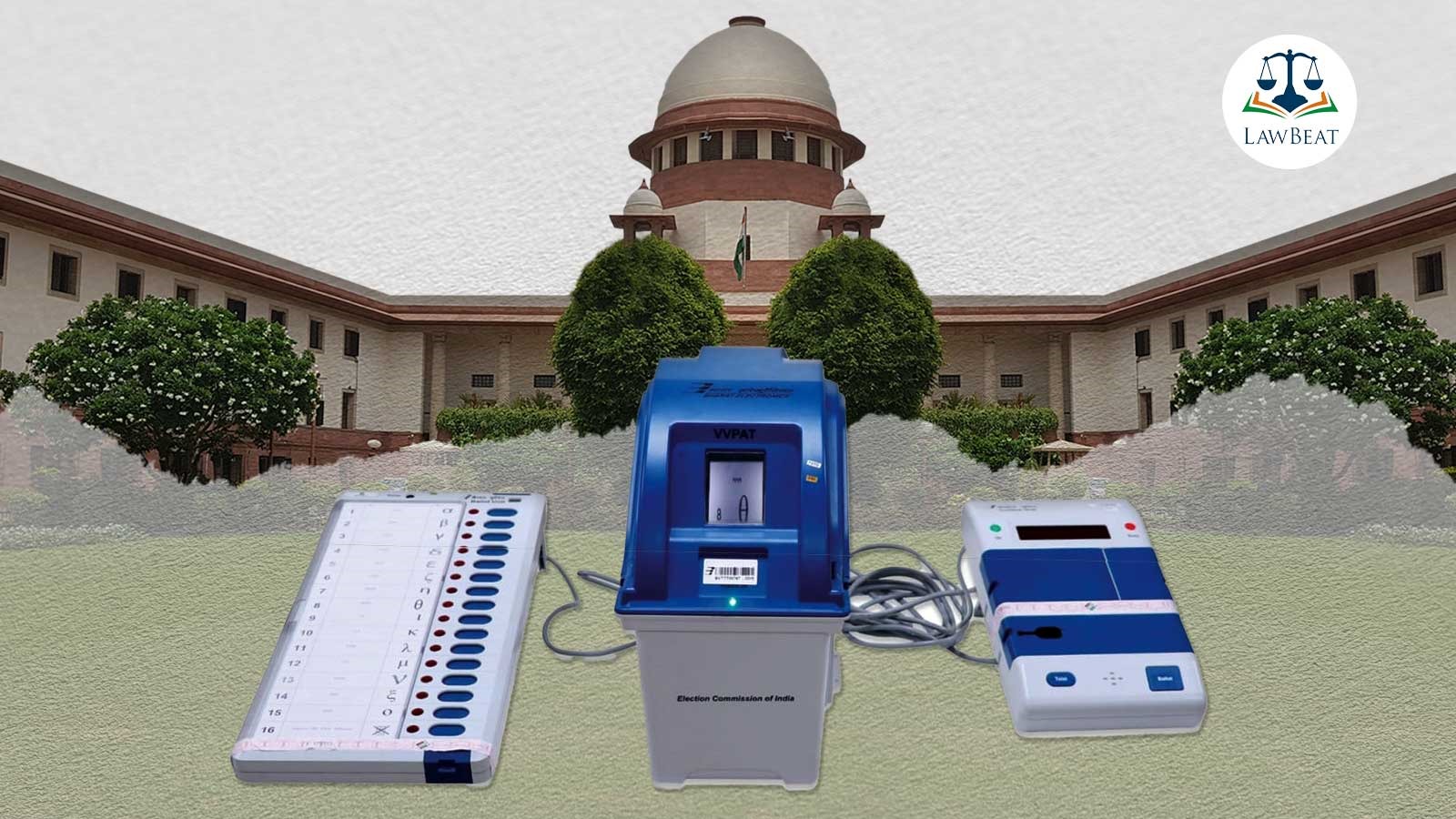'Not a single mismatch till date; We can't issue directions on mere suspicion': SC in plea for 100% VVPAT count

Court finally reserved its order after hearing arguments from the counsel, and saying that it had some queries which it wanted to put across to the Election Commission
The Supreme Court on Wednesday said that it cannot control elections or act as a controlling authority for the Election Commission, another constitutional body.
Hearing a plea for raising VVPAT counts to 100 %, a bench of Justices Sanjiv Khanna and Dipankar Datta said that consequences are provided under the law against anyone who does any misdeed and the court cannot issue any mandamus on the basis of mere suspicion.
"Till date, there has not been a single instance of mismatch. Let any candidate show any mismatch ...We can't control election, we can't be controlling authority for another constitutional body," the bench said.
"If there is something to improve, we will do it. But your response is go back to ballot papers," the bench told advocate Prashant Bhushan and senior advocate Santosh Paul, appearing for the petitioner NGO Association for Democratic Reforms and others.
The bench pointed out that the Supreme Court has twice intervened in the matter, first in Subramanian Swamy case by directing the use of VVPATs and secondly by raising the VVPAT count from one to five randomly selected machines.
Paul, appearing for a petitioner, gave example of a mobile phone which can be hacked and even tracked after being switched off which was previously not the case with it.
The bench then asked if it could issue a mandamus on the basis of suspicion.
The court finally reserved its order after hearing briefly arguments from the counsel, saying it had some queries that it wanted to put it across to the Election Commission.
Deputy Election Commissioner, Nitesh Vyas, appearing in person, submitted before the court that there are three units, control unit, ballot unit and VVPAT, which have their own microcontrollers, which are housed and cannot be accessed physically and a one-time programme is burnt into them. He also said the EVM machines are secured for 45 days normally and in case of filing of election petition, the time is extended.
Earlier in the day, the court made a number of queries and sought presence of the EC official before it at 2 PM.
During the pre-lunch session, Paul submitted that the source code of EVMs were not disclosed.
The bench, however, said that it should never be disclosed and if it is disclosed, it can be misused.
On April 18, the court had said that everything about the EVMs cannot be suspected but the voters are required to be satisfied with the explanation given by the Election Commission, as it had reserved order on a plea for raising VVPAT counts to 100 % from current system of five machines.
On April 1, 2024, the Supreme Court had issued notice to the Election Commission of India (ECI) on the writ petition demanding mandatory cross-verification of Electronic Voting Machines (EVMs) with Voter Verifiable Paper Audit Trail (VVPAT) slips.
The petition, filed by lawyer and activist Arun Kumar Agrawal, sought a direction to ensure that all VVPAT slips are counted alongside the votes cast electronically. The plea filed through advocate Neha Rathi sought a direction for a comprehensive count of VVPAT slips, challenging the current practice of verifying only five randomly selected EVMs through VVPAT paper slips.
The petition further challenged the EC's guideline which mandated that VVPAT verification shall be done sequentially, i.e. one after the other, causing undue delay.
It contended that if simultaneous verification is done and more number of officers are deployed for counting in each assembly constituency, then complete VVPAT verification can be done in matter of five-six hours.
Case Title: Association for Democratic Reforms Vs Election Commission of India & Ors
